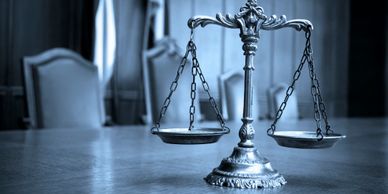
Steps to Take Immediately After Being Wrongfully Terminated
Being fired from your job can be a shocking and stressful experience — especially if you believe the termination was unjust or illegal. In the heat of the moment, it’s easy to feel overwhelmed, emotional, or unsure of what to do next. But the steps you take in the hours and days following your termination can make a major difference in protecting your rights, preserving evidence, and potentially recovering compensation.
If you believe you’ve been wrongfully terminated, here’s a clear, step-by-step guide to follow right away:
1. Stay Calm and Professional
No matter how unfair your firing feels, resist the urge to argue, shout, or storm out. Reacting emotionally could damage your reputation or be used against you later. Instead:
- Politely ask for clarification on the reason for termination.
- Request documentation (such as a termination letter) in writing.
- Avoid signing anything on the spot — especially severance agreements or waivers — without reviewing it first.
Keep in mind: employers are often watching how you handle your exit. Staying composed can leave the door open for negotiations or legal recourse later on.
2. Request Your Personnel File
You have the right to request a copy of your personnel file in many states. This may include performance reviews, disciplinary records, and complaints — all of which can be helpful if you decide to pursue legal action.
Make your request in writing and keep a record of it. Even if your employer refuses, having proof that you asked for it helps your case.
3. Document Everything
As soon as possible after your termination:
- Write down everything you remember about the termination meeting, including who was present and what was said.
- Start a timeline of key events: when you reported an issue, when performance reviews changed, or when conflicts began.
- Save emails, texts, and documents that might be relevant — especially anything involving complaints you made, retaliation, or discriminatory behavior.
Time can blur details, so it’s important to capture everything while it’s fresh in your mind.
4. Don’t Sign Anything Without Legal Review
Employers often present documents like severance agreements, releases, or nondisclosure agreements (NDAs) during or shortly after termination. These documents may:
- Limit your right to sue
- Require you to waive claims
- Restrict what you can say about your termination
Even if the severance pay seems generous, you could be giving up far more in potential damages. Always consult with an employment attorney before signing anything.
5. Apply for Unemployment Benefits
In most cases, you can apply for unemployment benefits right away — even if you’re unsure whether your firing was legal. Don’t assume you’re ineligible just because your employer said you were terminated “for cause.” If you were wrongfully fired, you may still qualify.
Be honest in your application and provide as much documentation as possible. If your claim is denied, you may have the right to appeal.
6. Reach Out to a Wrongful Termination Attorney
The sooner you involve an attorney, the better. An experienced employment lawyer can:
- Help you understand whether your firing was illegal
- Identify potential violations (e.g., discrimination, retaliation, contract breach)
- Advise you on whether to negotiate, file a claim, or pursue a lawsuit
Most employment lawyers offer free consultations and may take your case on a contingency basis — meaning you don’t pay unless they recover compensation for you.
7. Avoid Talking About the Termination Publicly
It’s natural to want to vent on social media or tell coworkers what happened, but this can backfire. Anything you post publicly could be used against you or harm your reputation.
Instead, keep conversations limited to trusted friends, family, or your legal team. Your story deserves to be told — but the right time and place matters.
8. Begin Your Job Search (and Document It)
Even if you plan to pursue legal action, you’re still expected to look for new work. This is known as “mitigating your damages.” Courts may reduce your compensation if you didn’t make an effort to find another job.
Keep a detailed log of:
- Jobs applied to
- Interviews attended
- Recruiter communications
This not only helps you stay organized but can support your legal claim if your case goes to court or arbitration.
9. Take Care of Your Mental Health
Wrongful termination can leave you feeling angry, anxious, or depressed. It’s a deeply personal experience that can affect your confidence and self-esteem. Don’t minimize the emotional impact — seek support through:
- Counseling or therapy
- Support groups
- Exercise or mindfulness practices
Taking care of your mental health isn’t just good for your well-being — it also puts you in a stronger position to rebuild and move forward.
Final Thoughts
Getting fired is hard enough. Getting fired illegally is worse. But you don’t have to navigate it alone — and you don’t have to accept it.
By staying calm, collecting evidence, and contacting an employment attorney quickly, you can take control of the situation and begin fighting back. Whether your case ends in a settlement or a courtroom, the first few steps you take can make all the difference. If you’re in need of a wrongful termination lawyer in Maryland, reach out to Mundaca today.
If you suspect your termination was unlawful, trust your instincts — and take action today.
